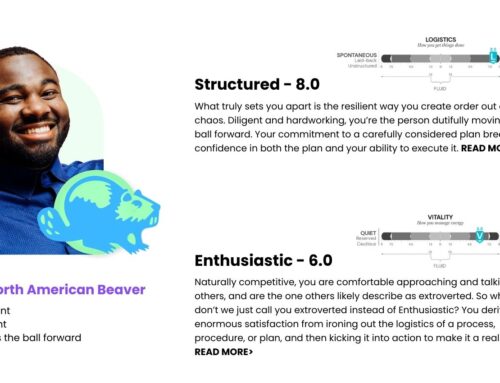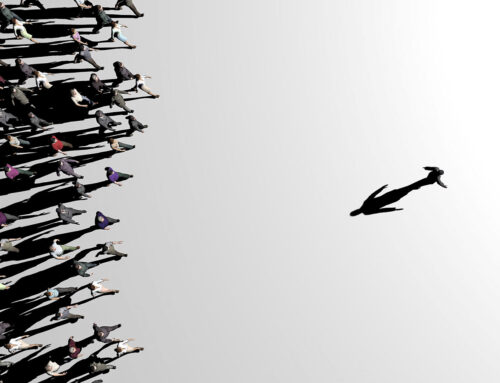One Kind of Humility
Business magazines love to firehose their readers with ‘helpful’ lists of words, practices, and steps we can take to achieve new levels of corporate success, personal happiness, and world peace. But how helpful are such lists, particularly when a new one hits the inbox every day or two?
Do we really need new reams of information, or to revisit classic nuggets of wisdom – wisdom we might actually put to use?
Take this recent piece on the importance of humility. Actually, eight kinds of humility. Cultural, famillial, intellectual – you get the idea. Who knew?
In the writer’s defense, she was borrowing from a separate piece by psychiatrist Ravi Chandra.
It’s not really the good doctor’s fault either. As is the case with most scientific minds, Dr. Chandra is compelled to endlessly parse distinct expressions of human behavior, label them, then write a paper (or book) on the heretofore unknown and unexamined phenomenon.
“Do you wish people to think well of you? Don’t speak well of yourself.”– Blaise Pascal
In this case, it’s not enough to practice humility – we must be alert to the unique brand of humility required of a situation.
But who has the time – or memory – for these lists? (At some stage you can bet one of Chandra’s contemporaries will best his list with 12 or 20 forms of humility. Maybe AI will do it. Feels inevitable.)
So back to humility. Yes, humility is a positive. Lord knows the world needs a lot more of it.
But rather than memorize or put into practice eight of kinds of humility, how about just one kind of humility, the one passed down by sages and seers, philosophers and saints, the one that reminds us: recognize, in everything you do, that you are the vehicle through which knowledge, wisdom, art, talent, or any number of other gifts are expressed.
Easier still, picture Yo-Yo Ma’s humble cello, which does not boast of the music emanating from its strings.
So when the gift is granted, choose humility – and gratitude (no need for eight types of that either).
One Kind of Humility
Business magazines love to firehose their readers with ‘helpful’ lists of words, practices, and steps we can take to achieve new levels of corporate success, personal happiness, and world peace. But how helpful are such lists, particularly when a new one hits the inbox every day or two?
Do we really need new reams of information, or to revisit classic nuggets of wisdom – wisdom we might actually put to use?
Take this recent piece on the importance of humility. Actually, eight kinds of humility. Cultural, famillial, intellectual – you get the idea. Who knew?
In the writer’s defense, she was borrowing from a separate piece by psychiatrist Ravi Chandra.
It’s not really the good doctor’s fault either. As is the case with most scientific minds, Dr. Chandra is compelled to endlessly parse distinct expressions of human behavior, label them, then write a paper (or book) on the heretofore unknown and unexamined phenomenon.
“Do you wish people to think well of you? Don’t speak well of yourself.”– Blaise Pascal
In this case, it’s not enough to practice humility – we must be alert to the unique brand of humility required of a situation.
But who has the time – or memory – for these lists? (At some stage you can bet one of Chandra’s contemporaries will best his list with 12 or 20 forms of humility. Maybe AI will do it. Feels inevitable.)
So back to humility. Yes, humility is a positive. Lord knows the world needs a lot more of it.
But rather than memorize or put into practice eight of kinds of humility, how about just one kind of humility, the one passed down by sages and seers, philosophers and saints, the one that reminds us: recognize, in everything you do, that you are the vehicle through which knowledge, wisdom, art, talent, or any number of other gifts are expressed.
Easier still, picture Yo-Yo Ma’s humble cello, which does not boast of the music emanating from its strings.
So when the gift is granted, choose humility – and gratitude (no need for eight types of that either).



